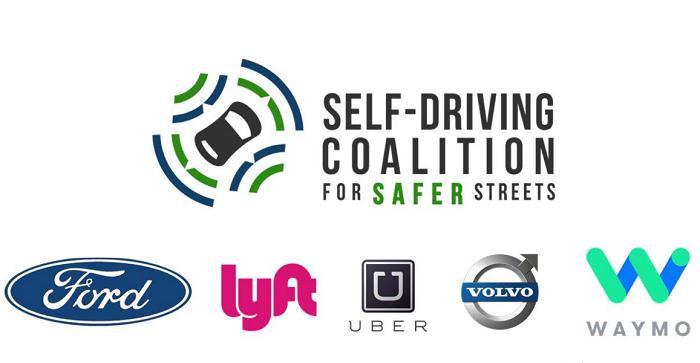▼
Follow the video number to discover more exciting
The Self-Driving Coalition for Safer Streets, the top lobby group in the U.S. self-driving industry, renamed it the Autonomous Vehicle Industry Association (AVIA) and discarded the misleading term "self-driving."

AVIA was founded in 2016 by Waymo, Ford, Lyft, Uber and Volvo to lobby lawmakers to pass legislation that benefits its members. The organization already includes the top self-driving car operators in the U.S., including Cruise, Aurora, Argo AI, Motional, NNuro and Zoox. It's the latest move in the self-driving car industry to distance itself from the term "self-driving," which many observers have interpreted as acknowledging that Tesla has had a huge impact on public awareness in the spread of the technology.
Tesla sells a feature called Full Autopilot (FSD), a beta version of an advanced driver-assisted driving system that can control cars to perform many functions on the road but still require human supervision. In contrast, self-driving cars can drive on public roads without any human intervention or supervision. To be sure, AVIA didn't mention Tesla in its statement, but it did say the new name is more in line with its members' "commitment to the precision and consistency with which industry, policymakers, journalists, and the public talk about self-driving technology."
AVIA explains: "The association recently called on all stakeholders to make a clear distinction between autonomous driving and driver assistance systems to promote consumer trust and understanding. AVIA supports the development of self-driving cars, which it hopes will accomplish all driving tasks. Self-driving cars don't require manual operation, or even a backup driver, and the people or packages in the car are just passengers or cargo. ”
A year ago, Waymo announced it would stop using the term "self-driving cars" to describe its fleet and worked to use "more thoughtful language" in its marketing, education and promotional materials. The company quoted "certain automakers" as saying they "used the word 'autonomous driving' inaccurately," which could lead to confusion and even crashes.
A few years ago, Waymo had considered developing an advanced driver-assisted driving system, such as a Tesla FSD version of Autopilot, but ultimately decided to abandon it because it was "shocked" by the negative impact it had on drivers. Drivers will doze off or even fall asleep completely at the wheel.
There is a growing urgent call for the use of standardized language to describe autonomous driving. Ford has stepped up to support standardized visual cues, and self-driving cars can be used to convey intent to pedestrians, cyclists and other drivers.
Meanwhile, critics continue to lash out at the five levels of automation defined by the Society of Automotive Engineers, the Society of Automotive Engineers, which are too broad and potentially dangerous. Most experts agree: We need a better, more unified way to talk about self-driving cars.
U.S. regulators agree. In a recent interview, U.S. Transportation Secretary Pete Buttigieg commented on any company that uses misleading language to describe driver-assisted driving features. "I've been saying this all along, and all that's available on the market right now is driver assisted driving technology, not driver replacement technology," he said. I don't care what it's called, but we need to make sure we know this very well. ”
Initially, many in the self-driving auto industry expressed skepticism about Waymo's move. There are alleged concerns that ceding the term "autopilot" to Tesla could mean serious consequences. Some CEOs of self-driving car companies oppose the idea of abandoning the term in favor of continuing to educate the public about the difference between their vehicles and those equipped with L2-level driver-assisted driving systems.
But now, lobbies that include nearly all of America's self-driving car operators are abandoning the term, and those concerns now seem to have become a reality. But what happens when Tesla decides to release a product called "Full Automatic"?